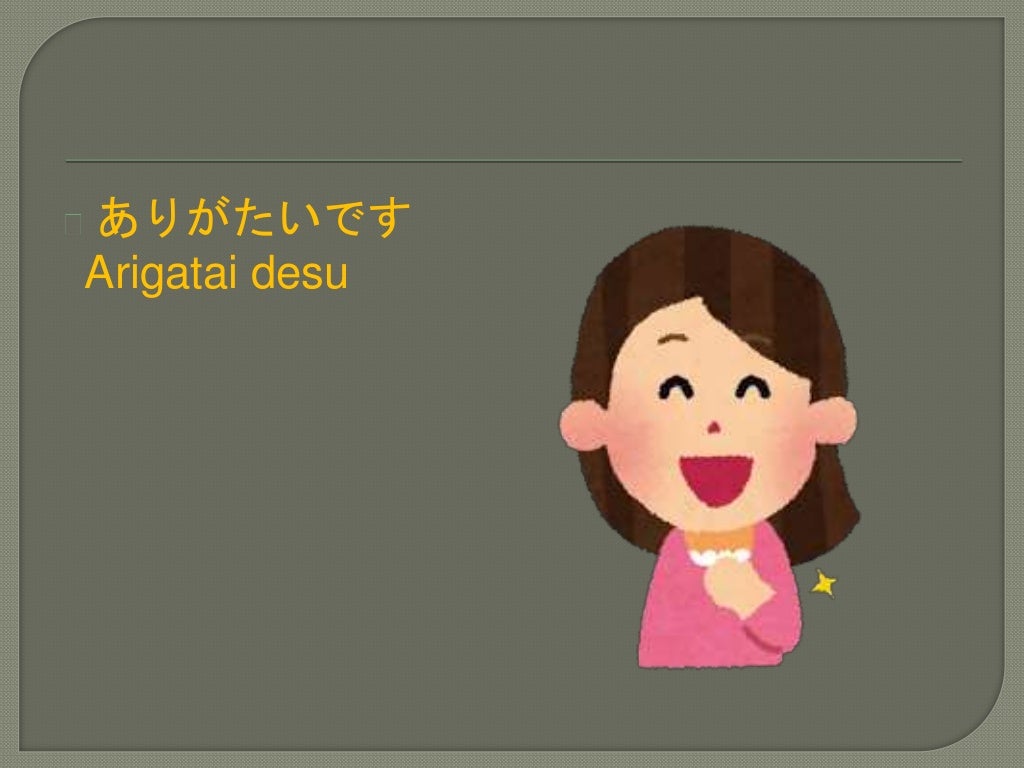
Arigatou gozaimasu
1. Dou Itashimashite - You're Welcome (formal) This is the standard reply that Japanese textbooks teach you to use when someone says "Arigato" or "Arigato gozaimasu". Dou itashimashite (どう致しまして or どういたしまして) means " You are welcome ", " Don't mention it ", " Not at all ", or " My pleasure.
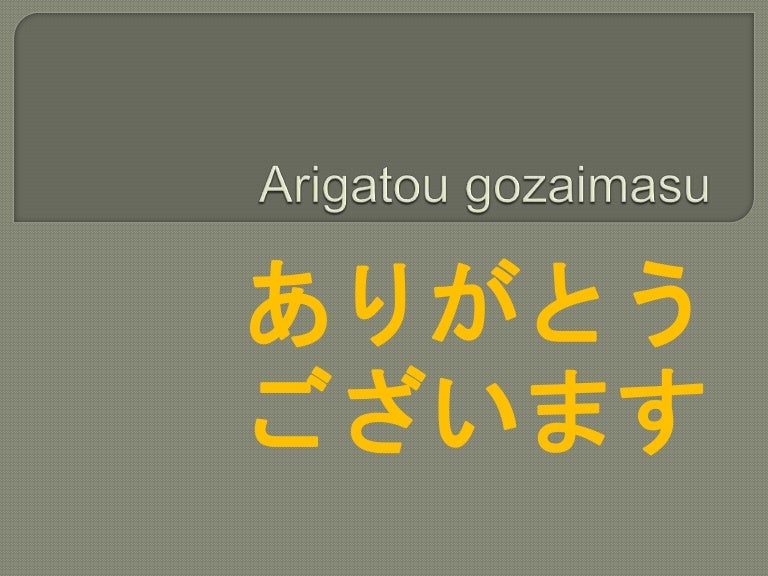
Arigatou gozaimasu
Senpai, ohayō gozaimasu. Hai, kyō wa ikimasu.. Maido arigatou gozaimasu = Thank you for always shopping with us. What NOT to say to your boss or co-workers. There are some things that should never be said to your coworkers or boss in a professional setting like the workplace. Avoid these phrases so you don't get a bad reputation or a.
ARIGATOU GOZAIMASU r/Konosuba
3. How to Respond to Hai in Japanese. The most common way of responding to Hai in Japanese is by saying "Arigatou gozaimasu" (ありがとうございます). This phrase translates directly as "thank you very much" and is considered a polite way of expressing gratitude for something that has been said or done. Alternatively, you could.
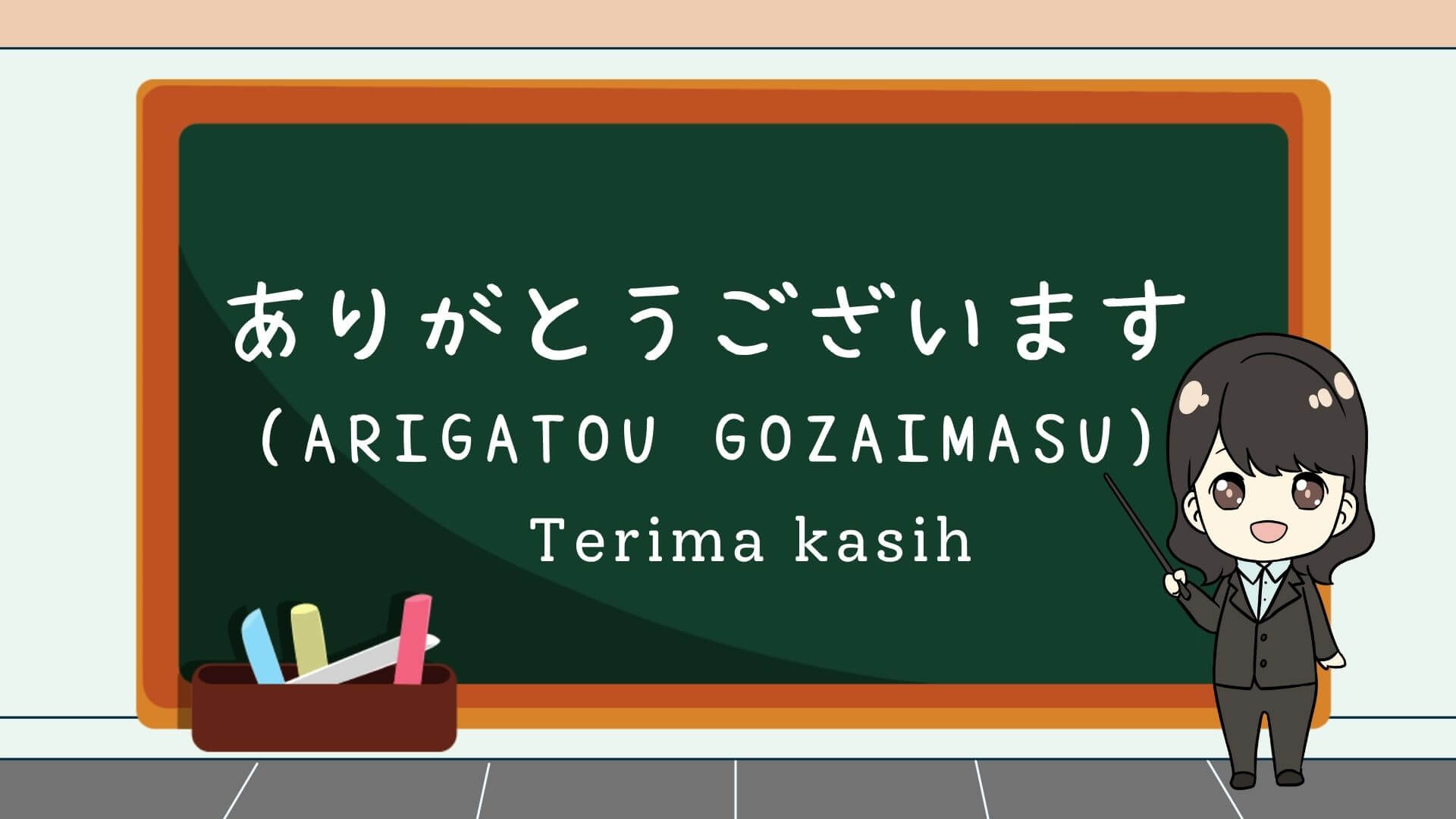
Arigatou gozaimasu (Terima Kasih) Belajar Bahasa Jepang Kepo Jepang
0. dōmo (どうも) This is close to "thanks" nuance. It is used when talking friends. If used to your boss, that is rude. dōmo arigatō (どうもありがとう) This is almost same as dōmo, but this is commonly used. arigatō gozaimasu (ありがとうございます) It is very polite.
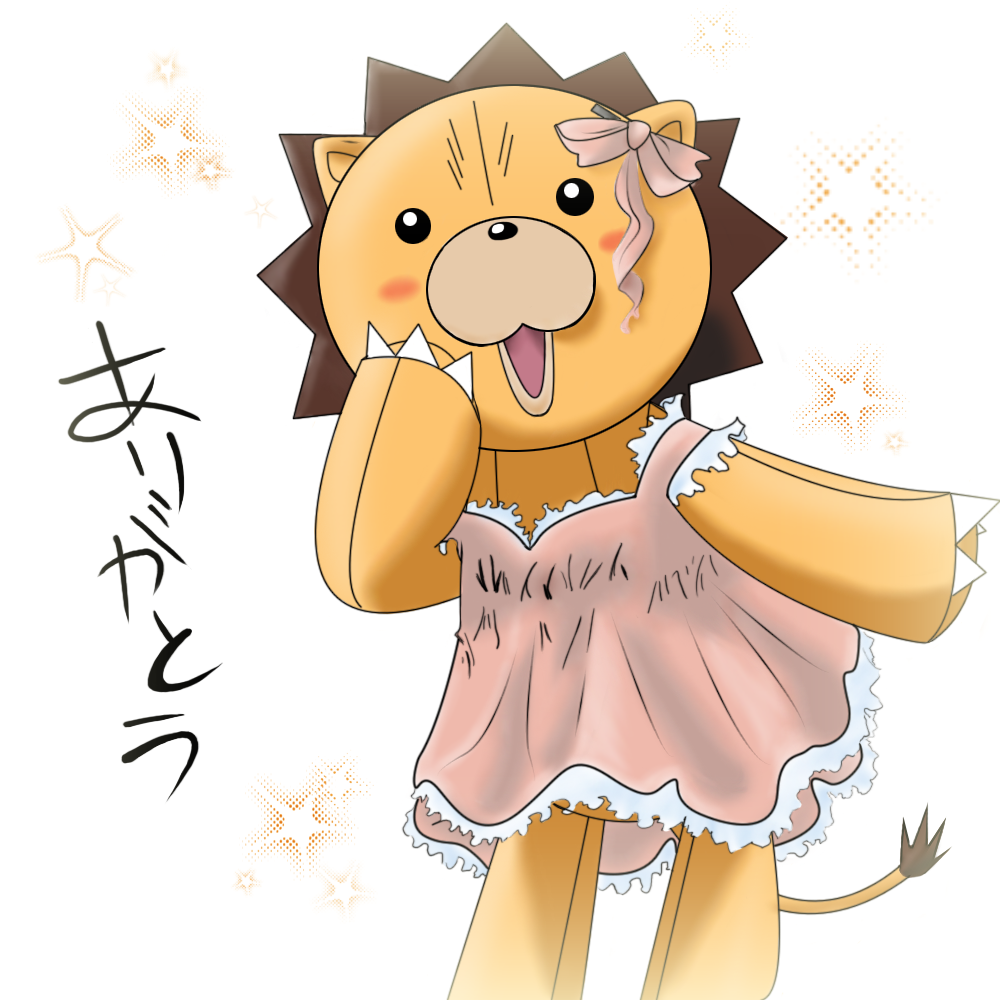
.Arigatou Gozaimasu. by Sugarlesschocolate on DeviantArt
This one is for situations when you want to be even more polite. 3. Hontoni arigato gozaimasu / Thank you so much. If you want to emphasize your appreciation, you can say " hontoni arigato gozaimasu ". If you want to be a little more casual, you can say " hontoni arigato " [honto:ni arigato:]. 4.

Sketch 2 Arigatou gozaimasu from Horikoshi! [COLOURED] BokuNoHeroAcademia
Arigato gozaimasu (sometimes transcribed in "Arigatou gozaimasu") is a more polite way of saying "Arigato". This is the most common form of politeness when you talk to someone who has a higher professional or social status than yours. Domo arigato gozaimasu, a formal thank you very much. どうもありがとうございます。 Domo.

Arigatou Gozaimasu Saudação Linda Borda Branca PNG , Arigatou Gozaimasu, Saudações, Fofa Imagem
To say "thank you" in Japanese, use "Domo arigatou" if you're with friends or co-workers. You can also shorten the expression to "Arigatou" with family and friends. If you're speaking to a supervisor, teacher, family elder, or someone who has a higher status than you, use the formal phrase, "Arigatou gozaimasu."
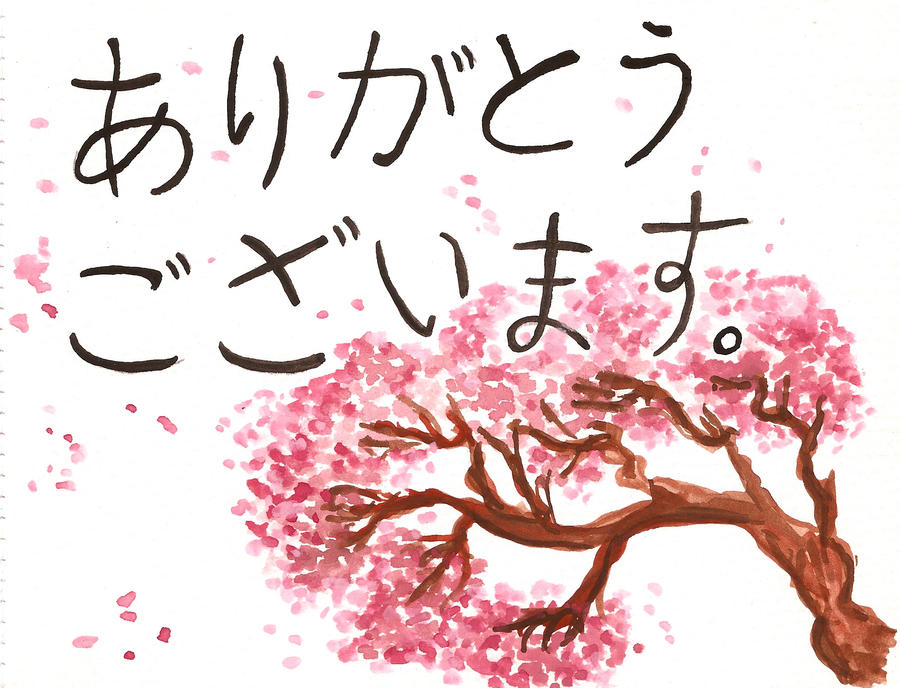
Arigato gozaimasu by emmaprew on DeviantArt
Ohayo gozaimasu (おはようございます) is a formal Japanese greeting meaning " Good morning ". The first word " ohayo " is derived from the adjective for " early " which is " hayai " (早い) and the last word " gozaimasu " (ございます) is commonly used to add politeness. Literally the full phrase translates as.

THANK YOU in Japanese arigatou gozaimasu vs arigatou gozaimashita YouTube
The Japanese word " arigato " (ありがとう) means " thank you " or " thanks ". It is the most basic and one of the most commonly used expressions to say " thank you " in Japanese. Personally, I prefer to think of it and translate it as " thanks " instead of "thank you" since it is the slightly more casual version.
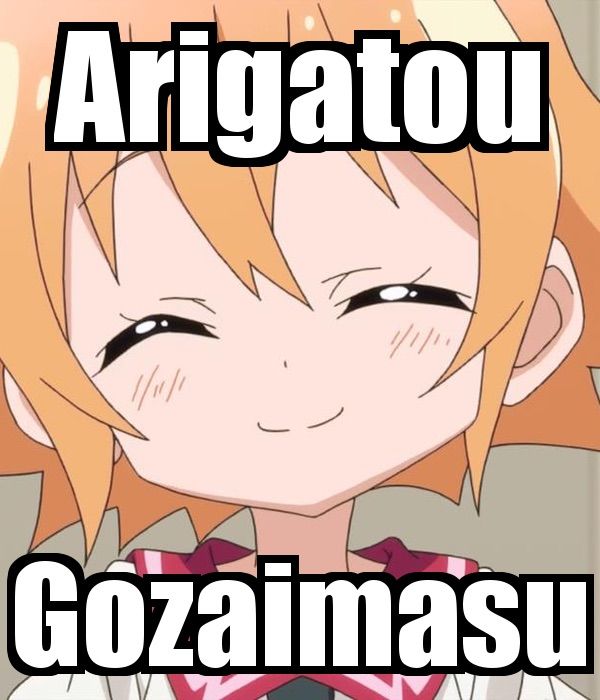
Arigato Gozaimasu /w\ •Anime• Amino
Knowing how to say 'thank you' in any language is one of the first, and best, things to learn. The gesture is immediately appreciated, especially in Japan, which is an extremely polite society. The Japanese take great pleasure in people from other countries making the effort to communicate with them, so don't feel shy about trying out your Japanese.

Arigatou Gozaimasu PNG, Vector, PSD, and Clipart With Transparent Background for Free Download
4 Ways to Say Thank You in Japanese. The word " arigatou " can be used in different ways depending on the formality of the situation. Starting from the most casual form: Doumo (どうも) Arigatou (ありがとう) Arigatou gozaimasu (ありがとうございます) Doumo arigatou gozaimasu (どうもありがとうございます) The term.
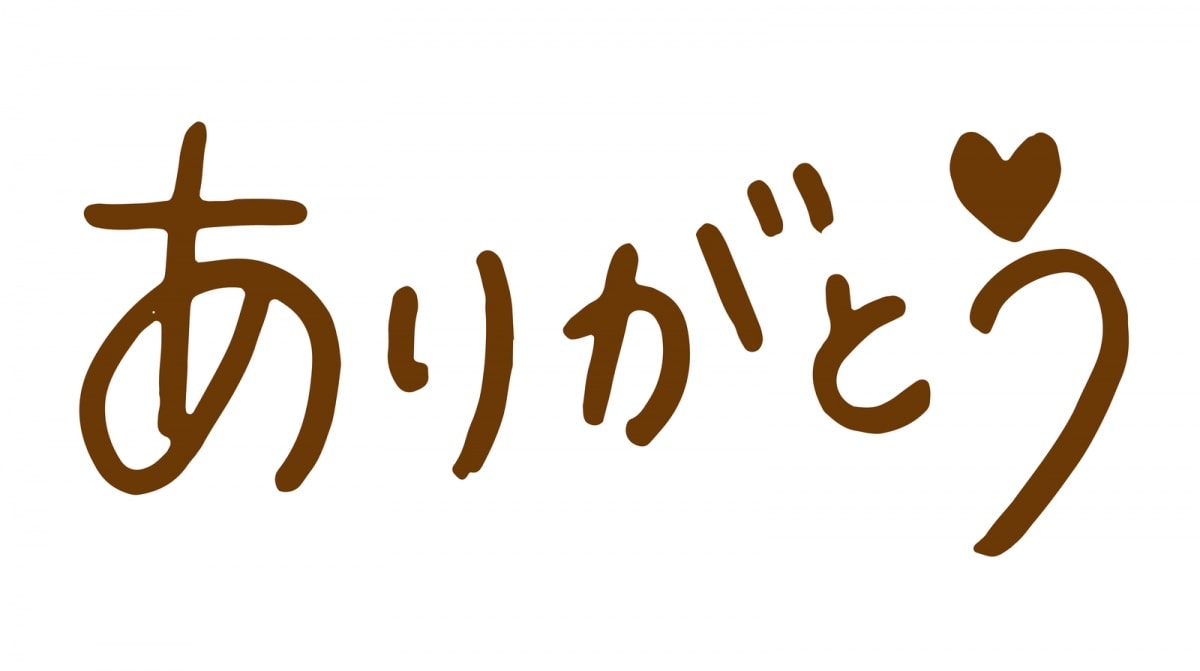
12 Key Phrases for Getting By in Japan All About Japan
Arigatou gozaimasu is the polite and formal way to say 'thank you very much' in Japanese and is a phrase which most of us already know. The word gozaimasu is an honorific expression for the verb 'to be' and it is also used with ohaiyou (Good morning) as in ohaiyou gozaimasu. Adding gozaimasu shows modesty and politeness, two values held.
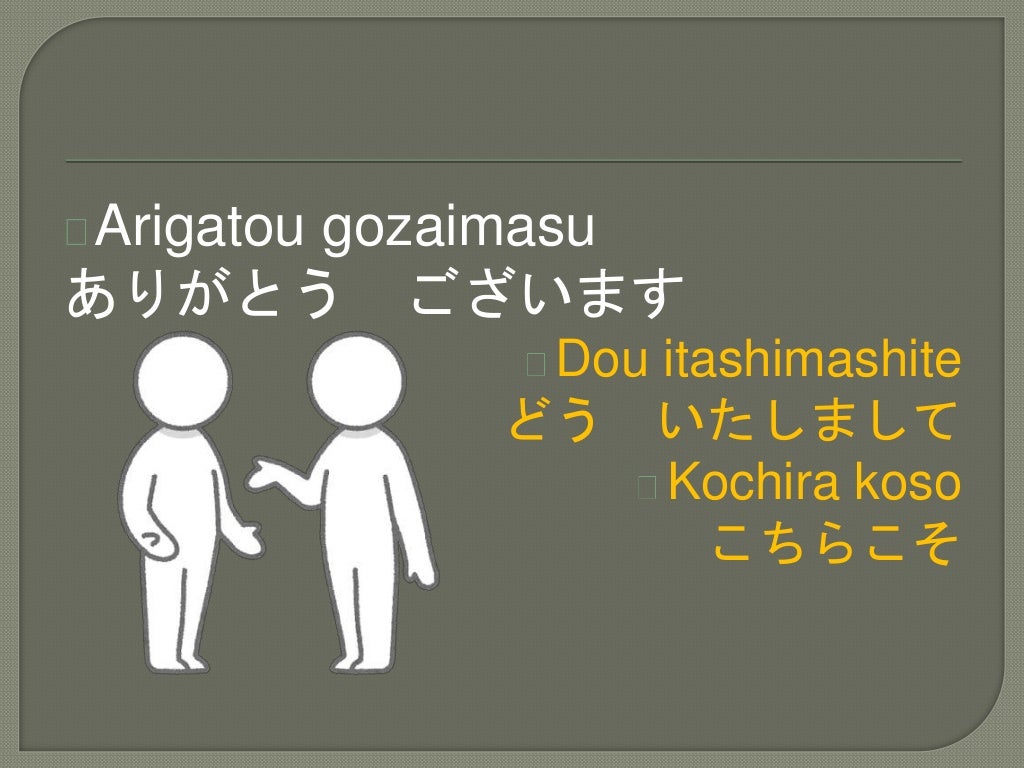
Arigatou gozaimasu
The phrase ありがとうございます Arigato gozaimasu literally means it is difficult to exist. あり Ari = exist. がとう gato (originally, gatai) = difficult or hard (very old Japanese) ございます = is (Humble Form) It refers to someone's action or deed that is difficult to exist, hence rare and precious, and something that we.

Arigatou Gozaimasu! by ichibiko on DeviantArt
The Basic 'Thank You' in Japanese: Arigatou. 'Arigatou' (ありがとう) is the most basic and widely recognized way to say 'thank you' in Japanese. This phrase is your go-to expression of gratitude suitable for a vast array of situations. It is versatile and can be used in both formal and informal contexts, showing appreciation for a favor, a.
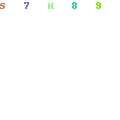
Everything about arigatou gozaimasu in Japanese
Arigatou (gozaimasu) expresses thanks in general. You should never use the short form with your superiors (teacher, boss, supervisor). Doumo expresses gratitude or apology. It can also be combined with arigatou gozaimasu ('Thank you very much') or sumimasen ('I'm very sorry'). Gozaimashita indicates past and is used when the act is.

QUAL A DIFERENÇA ENTRE "ARIGATOU GOZAIMASU VS ARIGATOU GOZAIMASHITA? YouTube
You say arigatou gozaimashita (ありがとうございました) when someone has already helped or done a favor. For example, if someone is offering a hand to carry your luggage, you will use the present tense. 荷物を持ってくれてありがとうございます。. Nimotsu o motte kurete arigatou gozaimasu. Thank you for carrying my.